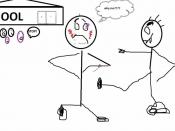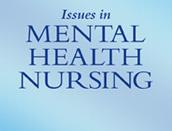Mental Health and problems associated with the mental health of young people in Ireland.
The World Health Organisation (WHO) describe mental health as a state of well-being in which every individual realises his or her own potential, can cope with the normal stresses of life, can work productively and fruitfully, and is able to make a contribution to his or her community. Individuals who are experiencing mental health issues can experience changes in their thinking, feelings and behaviours which can cause the person distress and difficulty in functioning. (science.education.nih.gov). A study by the Royal College of Surgeons Ireland (RCSI) showed that one in five young Irish adults, aged 19 -24 and one in six young people aged 11 -13 are experiencing mental health problems. Professor Mary Cannon of RCSI stated "our research shows that high numbers of teenagers and young adults in Ireland are experiencing mental ill health at any given time."
This paper will focus on bullying as one of the possible issues that may lead to poor mental health in young people in Ireland and aim to uncover some of the effects this can have on the mental health of the individual and look at what supports are available.
There are several types of bullying, some as listed by the Irish Society for the Prevention of Cruelty to Children (ISPCC) include; physical bullying, verbal bullying, emotional bullying and cyber-bullying. The Department of Education and Skills define bullying as repeated physical, verbal or psychological aggression directed by an individual or group against another. This behaviour toward the victim can be long-term or short term. Cyber-bullying is an act that takes place using electronic devices as well as communication tools including social media sites, text messaging and websites. For the purposes of this paper the focus will be on young...


